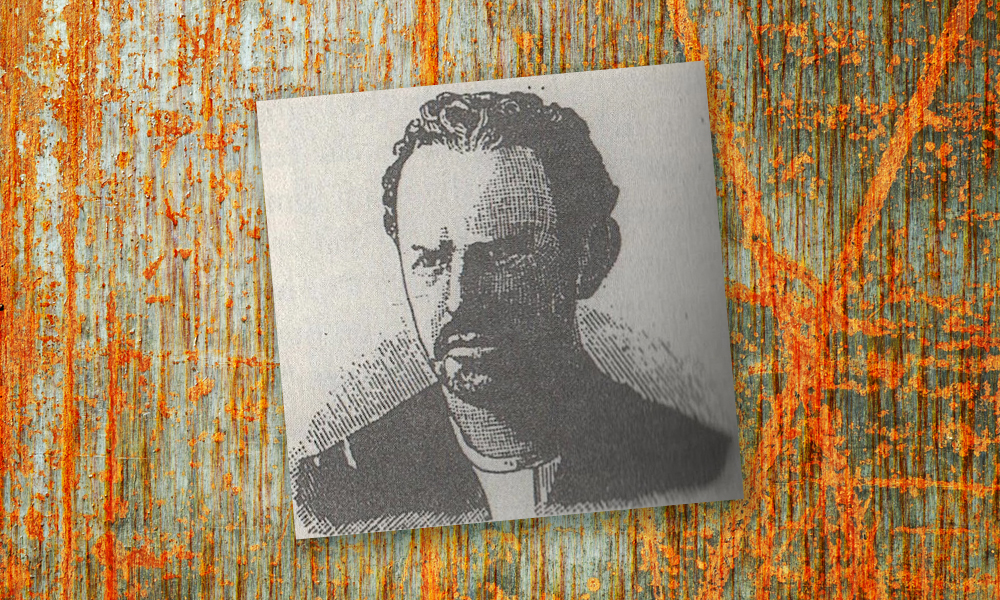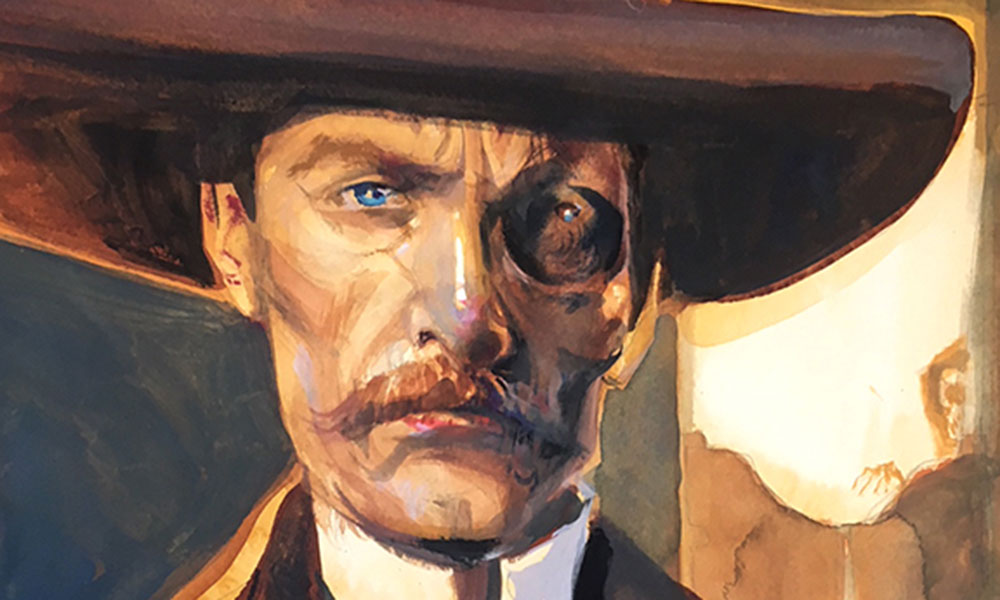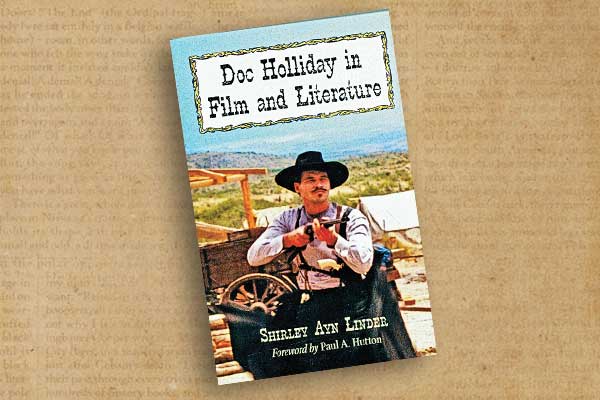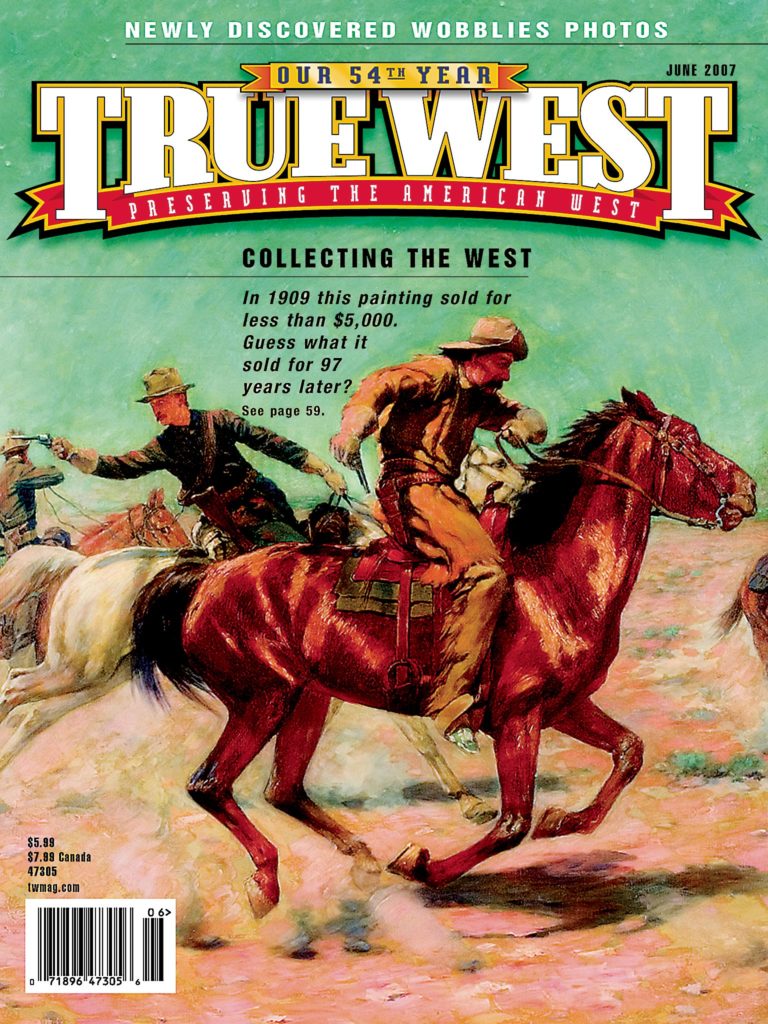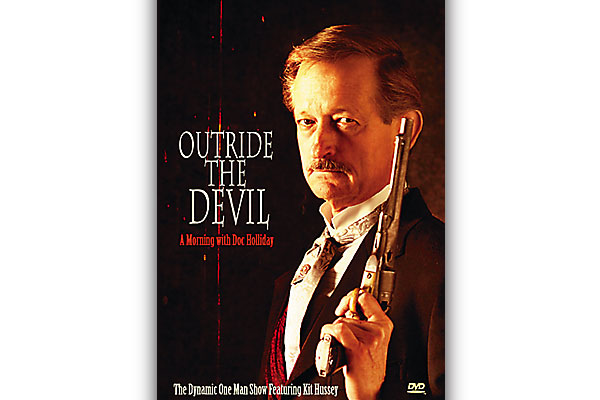 Those who have come to know Doc Holliday take him pretty seriously. It might be said that Holliday’s stock and measure has risen to the degree that it sometimes threatens to eclipse even his best friend Wyatt Earp, the same way, and for some of the same reasons, that Keith Richards has come to often overshadow his fellow Rolling Stone, Mick Jagger.
Those who have come to know Doc Holliday take him pretty seriously. It might be said that Holliday’s stock and measure has risen to the degree that it sometimes threatens to eclipse even his best friend Wyatt Earp, the same way, and for some of the same reasons, that Keith Richards has come to often overshadow his fellow Rolling Stone, Mick Jagger.
It’s a question of taste and temperament, but the consumptive, quick-tempered dentist from Georgia who stood beside the Earps behind the O.K. Corral is unquestionably one of the most fascinating figures in Western history. Quite a few character actors would climb over six Wyatts to get to one Doc.
Kit Hussey, a Texas-based actor, grandfather and retired pilot, takes his Holliday so seriously, in fact, that he has fashioned his own one-man theatrical presentation, “A Morning with Doc Holliday.” The play, which is captured on this disc using only a simple set and a few effects, follows Holliday through his last 14 years, until his death, which occurs offstage.
It’s a complex narrative that wants to blend fact and character without leaning too hard in either direction. Hussey packs his notion of the West with a great deal of information, and to his credit, Holliday’s character lends Hussey’s ideas the authority they need. It might not be necessary to have Holliday tell us his preferences in meat (likes buffalo and game, doesn’t like beefsteak) or pets (dogs), but there’s something charming in some of Hussey’s flourishes. Sticklers might resent the intrusion of opinions and details that have little or no basis in actual fact, but in all fairness, Holliday didn’t leave much moss.
It might be hard for some dedicated Holliday scholars to imagine Doc being this genial or long-winded—of late, audiences seem to prefer a more method-oriented John Henry Holliday, someone with more internal turmoil, more smolder. What may be even more disconcerting for some is Hussey is considerably older than Holliday was when he died (36), which trims a bit off the tragedy of Holliday and his tuberculosis.
All of which goes to say that Hussey is not the definitive Holliday—that jury will never come in—but he’s a capable actor and a good writer, and this 87-minute piece is as much a lecture as a portrayal, and a good one at that. Hussey doesn’t apologize for or exaggerate Holliday’s exploits to any objectionable degree, and that’s another major plus.
What Outride the Devil does best is to serve as an introduction to Holliday, Tombstone, Earp and the gunfight, and the West of the 1880s—it’s a great starting point.


